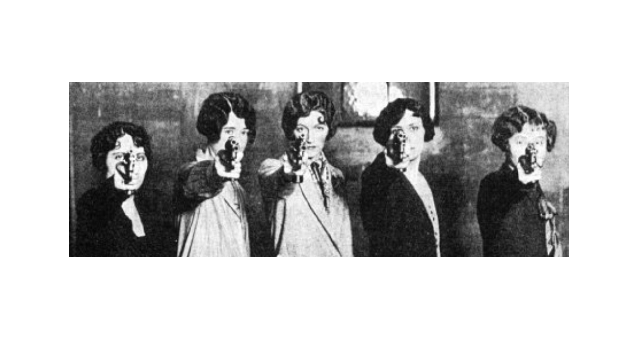Women and Guns: 2014 Small Arms Survey launched

[New York, 25 June 2014] The graduate institute Geneva launched the 2014 edition of its flagship publication "The Small Arms Survey 2014: Women and Guns", which considers the multiple roles of women in the context of armed violence, security, and the small arms agenda. The Small Arms Survey is produced annually by a team of researchers based in Geneva, Switzerland, and a worldwide network of
local researchers. Policy-makers, diplomats, and non-governmental organizations have come to value it as a vital resource for topical
analysis of small arms-related issues and armed violence reduction strategies.
Here are some key findings on violence against women and girls (VAWG), amongst other findings about small arms:
- Rates of domestic violence are higher wherever it is socially accepted as a justified response to household disputes.
- Attitudes that condone VAWG often pre-date conflicts, but they are reinforced during wars and often persist long past the formal cessation of hostilities.
- In Liberia, women are twice as likely as men to assert that a husband is sometimes justified in beating his wife, suggesting that many women have been socialized to accept domestic violence.
- In Nepal, the caste system, ethnic and economic cleavages, and the profile of the victim appear to influence the type and prevalence of VAWG. For example, women from marginalized groups are at a notably elevated risk of experiencing some type of victimization in their lifetimes.
- At the global level, development sector practitioners seek to change social norms that influence VAWG; these efforts are seen as an indispensable step towards improving the security of women and girls over the long term.
‘Gender equality would be a prerequisite for the reduction of violence against women,’ said Research Director Anna Alvazzi del Frate.
Another chapter discusses the recent convergence of the small arms agenda with that of women, peace, and security.
‘The reality is that the process towards more participation of women in public life should also enable women to have a more effective approach in policy-making and gun control,’ Anna said.
An illustrated section combines artwork with accounts of women’s personal experiences as soldiers, rebels, and security personnel.
Other chapters assess the potential impact of the Arms Trade Treaty, present the 2014 Transparency Barometer and an update on the authorized small arms trade, and analyse the catastrophic 2012 explosions at a Brazzaville munitions depot.
Zainab Hawa Bangura, Special Representative of the United Nations Secretary-General on Sexual Violence in Conflict, endorsed the volume, saying, ‘The Small Arms Survey 2014 offers important insights into how and why armed violence continues to plague the lives of many women and girls around the world—along with some of the options we have for building a safer future.’
Selected chapters from Small Arms Survey 2014: Women and Guns, as well as summaries of all the findings, are available at smallarmssurvey.org. Review copies are available on request from the Small Arms Survey.
The Small Arms Survey is an independent research project hosted by the Graduate Institute. Keith Krause, Professor of International Relations and Political Science, and Director of the Centre on Conflict, Development and Peacebuilding at the Graduate Institute, is the Small Arms Survey’s Programme Director.




